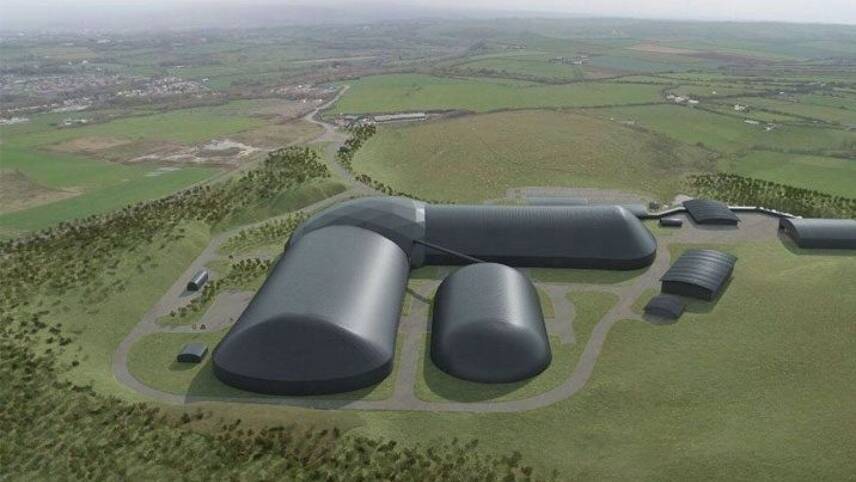Register for free and continue reading
Join our growing army of changemakers and get unlimited access to our premium content

Pictured: An artist's impression of the completed mine. Image: West Cumbria Mining Company
The Government was due to make a planning decision last month on West Cumbria Mining’s proposals for a new deep coal mine in Whitehaven. Cumbria County Council approved the plans in October 2020 and, for several months, the Government resisted calls to intervene with that decision. But, ultimately, a public inquiry was ordered in March 2021 with the mine’s compatibility with national and international climate targets being the key sticking point.
The inquiry officially closed late last year and the Government had originally promised to make a final planning decision on or before 7 July. It was reported on that day that the decision has been deferred due to the situation in Whitehall, with no new date confirmed yet.
Friends of the Earth has this week confirmed that it received a letter from Government, informing them that the grant decision for the coal mine has been further delayed until “on or before 8 November 2022”.
Commenting, Victoria Marsom of Friends of the Earth, said: “The case against this coal mine is overwhelming regardless of how many times the decision is delayed. The UK and European market for coking coal is set to rapidly diminish as manufacturers switch to greener steel, while coal from this mine won’t replace Russian imports. However, this new mine will increase carbon emissions, with the government’s climate watchdog describing it as “absolutely indefensible”.
“Fossil fuels cause enormous damage to both our environment and economy. Areas like Cumbria should be at the heart of building the greener future we need, so they can reap the benefits of the new jobs and opportunities this would bring.”
The project has proven controversial within the Conservative Party. Boris Johnson criticised the plans on the eve of COP26 after months of refusing to reveal his stance. But at least 40 Conservative MPs voiced support, publicly, for the project.
Proponents of the project highlight that the coal produced would not be used for power generation in the UK or abroad. The UK is bringing all coal generation offline by October 2024. Instead, the coal will be used by the steel industry. Proponents argue that it would be better to serve British steelmakers with local coal than to import coal, as imported coal also comes with the emissions associated with international shipping. They also point to the job creation potential of the mine.
Opponents have pointed out that even if the coal is used for steel, other nations will deem it acceptable to expand coal power and to keep using coal in manufacturing steel and other goods for a longer time.
There are also questions about whether British steelmakers will really want the coal, as they lean in to cleantech investments. The UK Government was told by the Climate Change Committee that coal should not be used for British steelmaking beyond 2035. Yet West Cumbria Mining applied to dig, potentially, through to 2049. Operations are actually likely to be far shorter – but that, in itself, raises questions around the just transition and levelling up.


Please login or Register to leave a comment.